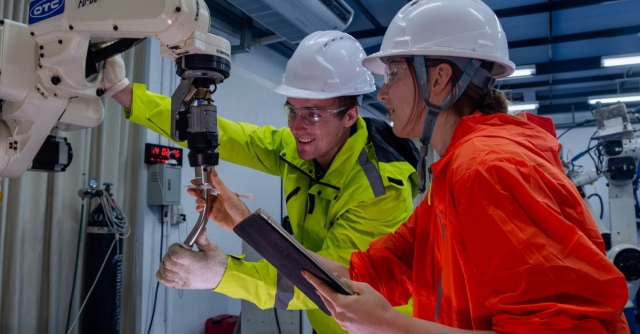Stepping into a hands-on career can be incredibly rewarding. Whether you’re drawn to crafting with precision or solving complex mechanical challenges, fields such as construction and automotive offer the chance to build, repair, and innovate.
But finding success requires more than talent or interest; you must also have technical skills and a commitment to growth. Here’s how to build skills for success in hands-on careers and start turning ambition into expertise.
Get Comfortable With Tools
Every manual career requires proficiency with specific tools. Investing time to understand tools and equipment can give you a solid head start. Online resources, how-to guides, and community workshops can teach you foundational skills, such as using power tools safely or handling precision instruments.
Think of it as building a toolbox of knowledge you’ll continue adding to throughout your career. Knowing how to wield equipment effectively will boost productivity and make navigating projects more enjoyable.
Master the Basics of Specific Systems
In industries including construction, agriculture, and robotics, understanding the differences between systems, such as hydraulic and pneumatic systems, is invaluable. Hydraulic systems use pressurized liquids to power machines, while pneumatic systems rely on compressed air.
Hydraulics excel in heavy-duty applications due to their strength and precision. Meanwhile, pneumatics are lighter and have faster operating speeds, making them ideal for tasks requiring repetitive motion. Grasping this distinction and being able to compare hydraulic and pneumatic fittings and other parts can help you choose the right components for different jobs. You’ll be able to align your operations with industry requirements and sharpen your troubleshooting skills.
Participate in Practical Training
A straightforward way to build skills for success in hands-on careers is to gain practical training. Seek out local trade schools, apprenticeships, or hands-on workshops in your area. Programs like these offer the opportunity to learn directly from experienced professionals while giving you exposure to real-world tools, machinery, and systems.
If you’re aiming for a career as a mechanic, joining a structured training program lets you develop skills under the guidance of those who know the trade best. This hands-on experience builds confidence and prepares you to solve challenges you may face in the workplace.
Build Experience Through Work and Volunteering
With training laying the foundation, apply what you learn in settings where your skills will take shape. Look for internships, part-time jobs, or even volunteer opportunities in your desired field. Construction sites, automotive garages, and manufacturing facilities are always on the lookout for eager learners.
Volunteering for small repair projects or shadowing professionals gives you experience and helps you build connections in your chosen industry. Every project you take on adds to your expertise and enhances your resume.
Keep Learning and Adapting
Innovation and technology reshape hands-on industries every day. To stay ahead, adopt a mindset of lifelong learning. Take courses, earn certifications, or participate in industry events to keep your skills sharp.
For example, learning about sustainable building materials or electric vehicle repair can expand your opportunities and future-proof your career. The more versatile your abilities, the better prepared you’ll be to tackle any career shift or new challenge that comes your way. Each step brings you closer to a fulfilling path where you can take pride in creating, repairing, and making a real-world impact.






